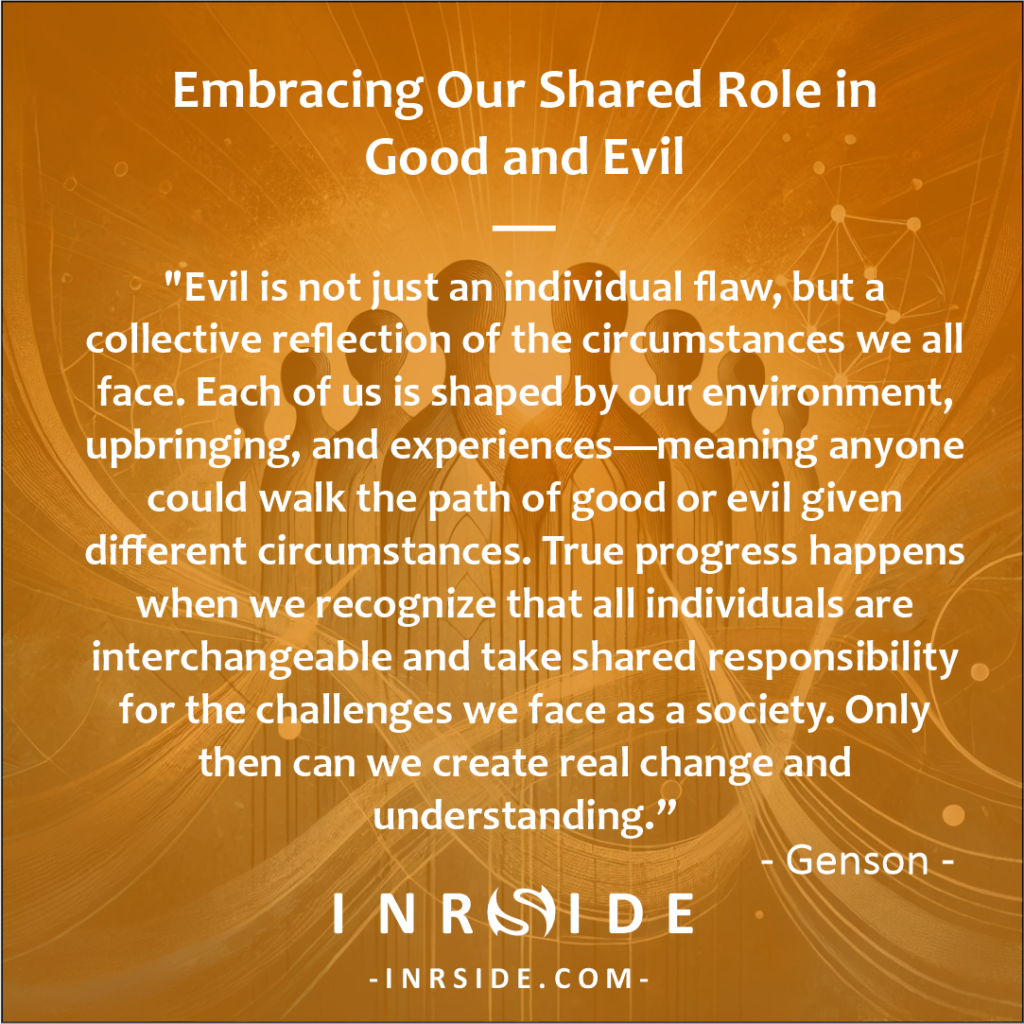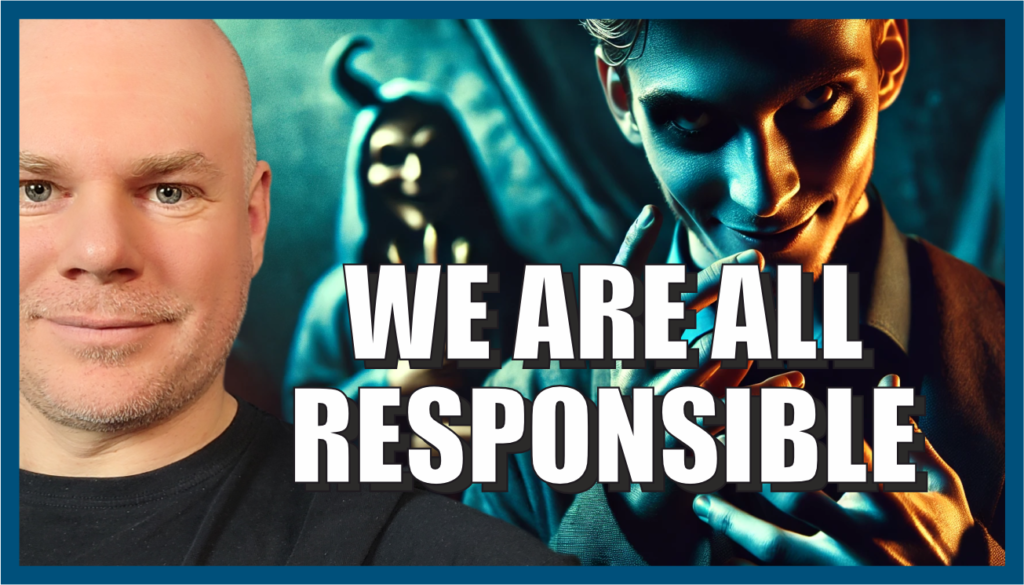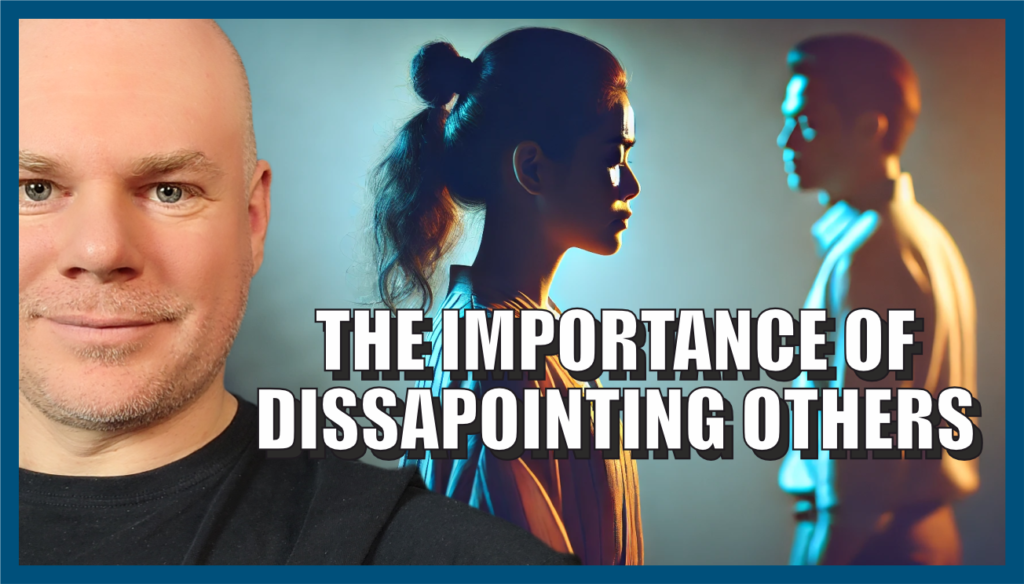In today’s world, we often view crime and wrongdoing through an individualistic lens. When someone commits a crime, they are judged, punished, and labeled as a “bad” person. However, there’s a different, more holistic way to approach this—one that looks at evil not as an individual failure but as a reflection of a collective responsibility.
In this blog post, we will explore an ancient, tribal approach to crime and wrongdoing that shifts the focus from individual blame to a shared societal responsibility. This perspective challenges how modern societies handle crime and reminds us that our environment and circumstances play a significant role in shaping who we become.
How Tribes View Crime: A Collective Approach to Evil
In certain tribal communities, when a member of the tribe does something wrong—whether it’s stealing, harming another person, or engaging in other socially unacceptable behavior—the response is not to punish the individual as we do in modern societies. Instead, the tribe looks at the wrongdoing as a collective issue. They believe that the individual has been “contaminated” by an evil spirit that affects the entire community.
Rather than singling out the person and isolating them from the group, the tribe comes together and treats the wrongdoing as a shared problem. In this view, the individual is not solely responsible for their actions—rather, the entire community is responsible. They believe that if one person in the tribe commits an evil act, it reflects something larger happening within the collective group. This shared responsibility is a powerful reminder that individual actions often stem from the environment, circumstances, and influences of the society at large.
Modern Society’s View of Crime: The Individualistic Approach
In contrast, modern societies are quick to judge and punish individuals for their wrongdoings. We focus on isolating the “bad” person, whether by imprisoning them or publicly shaming them. The belief is that the problem lies within that individual, and by removing them from society, the issue is resolved.
But is this really the best way to handle crime and wrongdoing? While it’s important to protect society from dangerous individuals, our hyper-focus on individual guilt may overlook the broader circumstances that contribute to negative behavior. Crime, violence, and even global conflicts are rarely isolated incidents. They are symptoms of deeper, societal issues that affect us all.
Why Evil Is a Collective Issue
When something bad happens in society, it’s rarely the result of one individual’s actions alone. It’s a product of the environment, the culture, and the circumstances that we all contribute to in some way. Wars, for example, are not caused by one bad person or leader. They are the result of collective decisions, societal values, and geopolitical tensions that span nations. Yet, when conflicts arise, we often focus on choosing sides, pointing fingers, and labeling certain individuals or countries as the “bad” ones.
This same mindset applies to interpersonal conflicts. Think about how disagreements between friends, family, or partners can escalate into larger issues. When we choose sides and blame others, the conflict grows. However, when we take a step back and recognize that our collective behavior influences the situation, we can approach the issue more constructively.
Recognizing Our Shared Responsibility
It’s easy to label others as “good” or “bad” based on their actions. But what if the roles were reversed? What if you were born into a different body, family, or culture? Would you still make the same choices? The reality is that none of us chooses our circumstances. Our environment, upbringing, culture, and even genetics shape our behavior more than we realize.
For example, if you were born into a life of poverty, lacked proper education, or were surrounded by violence, your decisions and actions would likely be very different than someone raised in a supportive and affluent environment. Recognizing this helps us understand that there is often little difference between us and those we judge as “bad.” The key difference lies in the circumstances we were born into—circumstances beyond our control.
Breaking the Illusion of Personal Merit
Many of us take pride in our accomplishments and personal achievements, believing that our success is a result of our hard work, intelligence, or perseverance. But if we dig deeper, we see that even these traits are shaped by external factors.
Did you choose your family? Could you select the teachers who influenced your education? Did you control the opportunities available to you in life? The reality is that much of what we accomplish is built on a foundation that we did not choose. This doesn’t diminish the value of our achievements, but it does provide perspective. It reminds us to approach others with empathy, knowing that their failures, like our successes, are often the product of forces beyond individual control.
A Path to Greater Understanding and Empathy
If we can shift our mindset from an individualistic view of wrongdoing to a more collective understanding, we open the door to greater empathy and cooperation. Instead of labeling others as bad or evil, we can begin to ask, “What circumstances led to this behavior?” and “How can we, as a society, address the root causes?”
The tribal approach of viewing evil as a collective issue teaches us that we are all connected. When one person in the tribe does something wrong, it reflects a deeper issue within the group. This perspective can be a powerful tool for modern society, especially when facing global issues like war, poverty, and crime.

Final Thoughts: Embracing Collective Responsibility
At the heart of this philosophy is the understanding that we are all interconnected. What affects one person affects us all. By acknowledging our shared responsibility for the good and the bad in the world, we can create a more compassionate and understanding society.
Rather than isolating individuals and focusing solely on punishment, we can begin to address the root causes of wrongdoing and work together to find solutions. By recognizing that we are all shaped by circumstances beyond our control, we can let go of judgment and embrace a more unified, collective approach to solving society’s problems.



